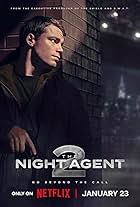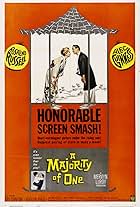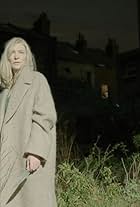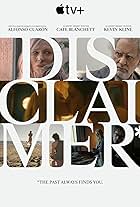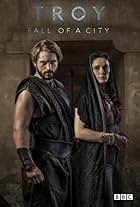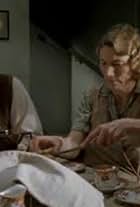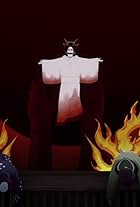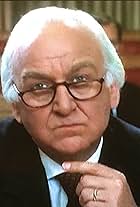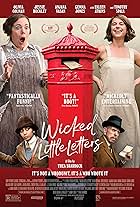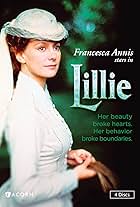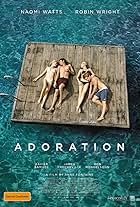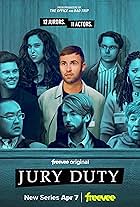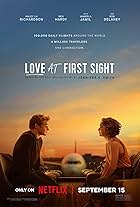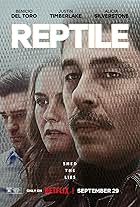lhhung_himself
Joined Feb 2002
Welcome to the new profile
We're still working on updating some profile features. To see the badges, ratings breakdowns, and polls for this profile, please go to the previous version.
Ratings4.3K
lhhung_himself's rating
Reviews116
lhhung_himself's rating
There is a compelling, horrifying true story that should be told. However, Colonia was so badly done, with so many obviously fake dramatic turns that impact of the real facts is completely lost. How much stock can one put in the brutality of the torture and the complicity with the Pinochet regime if we have a fake couple, a unbelievable "rescue", and an escape even more outrageously silly than the film that it copied from??
I've bought into 70's scream flicks with ketchup blood more than I did into the Colonia plot. At least in those films - incredibly stupid decisions have consequences.
Wrapping a moronic and poorly told story in true events and adding some real pictures at the end does nothing to improve a bad film - it just dishonors the true heroes and victims.
I've bought into 70's scream flicks with ketchup blood more than I did into the Colonia plot. At least in those films - incredibly stupid decisions have consequences.
Wrapping a moronic and poorly told story in true events and adding some real pictures at the end does nothing to improve a bad film - it just dishonors the true heroes and victims.
The quality of the first three stories was about as good as I have seen for a miniseries.
I found them realistic and dark but in those three stories there was always the unifying theme that some sliver of human decency was struggling to prevail, even in the most inhospitable of environments. It didn't always win, but that struggle was what made the first three stories relatable and linked them together.
The fourth story is completely different. There is no moral struggle. The protagonist acts completely entitled and is even more unlikable than the two yobs at the beginning of the story. Worse, she is just reading the script - there is nothing real for us to see and no soul for us to care about.
Too bad - the first three story lines were very compelling but the ending was so weak and jolting that it ruins the entire effect.
I found them realistic and dark but in those three stories there was always the unifying theme that some sliver of human decency was struggling to prevail, even in the most inhospitable of environments. It didn't always win, but that struggle was what made the first three stories relatable and linked them together.
The fourth story is completely different. There is no moral struggle. The protagonist acts completely entitled and is even more unlikable than the two yobs at the beginning of the story. Worse, she is just reading the script - there is nothing real for us to see and no soul for us to care about.
Too bad - the first three story lines were very compelling but the ending was so weak and jolting that it ruins the entire effect.
Woody Allen introduced me to A Streetcar named Desire with his gloriously goofy imitation of Blanche Dubois ("means white woods") in Sleeper. Streetcar later became one of my favorite films but despite transcendent performances by Vivian Leigh and Marlon Brando, it was more surreal than real and the characters never felt quite right.
In Blue Jasmine, Allen has fleshed out these symbols and transformed them into real people. Blanchett's Jasmine/Blanche is absolutely brilliant. Whereas Vivian Leigh threw in just enough of a hard edge to transform her character from being cheap melodrama to true tragedy, Blanchett takes it even further and makes us fully believe the faded belle, exposing her frailties and discarding any remnants of romanticism. We have no illusions that Jasmine is a good person - yet we do understand what she could have been and how her weaknesses inevitably led to her demise which is sad if not tragic.
The Brando character is split into two. We can not so easily disregard the unpleasant honesty because of the naked testosterone that bordered on brutality in the original. Andrew Dice Clay is amazingly good as the Cassandra who tells it exactly like it is. Bobby Carnavale displays the raw emotion, but with more humanity and vulnerability than brutishness.
Also the "Stella" character finally makes sense. In Blue Jasmine, she is a thinking, feeling sexual woman, and not just an afterthought.
I really enjoyed this film. It complements Streetcar and it takes someone with Allen's deep understanding of human frailties to breathe life into the William's archetypes and bring them into the 21st century.
In Blue Jasmine, Allen has fleshed out these symbols and transformed them into real people. Blanchett's Jasmine/Blanche is absolutely brilliant. Whereas Vivian Leigh threw in just enough of a hard edge to transform her character from being cheap melodrama to true tragedy, Blanchett takes it even further and makes us fully believe the faded belle, exposing her frailties and discarding any remnants of romanticism. We have no illusions that Jasmine is a good person - yet we do understand what she could have been and how her weaknesses inevitably led to her demise which is sad if not tragic.
The Brando character is split into two. We can not so easily disregard the unpleasant honesty because of the naked testosterone that bordered on brutality in the original. Andrew Dice Clay is amazingly good as the Cassandra who tells it exactly like it is. Bobby Carnavale displays the raw emotion, but with more humanity and vulnerability than brutishness.
Also the "Stella" character finally makes sense. In Blue Jasmine, she is a thinking, feeling sexual woman, and not just an afterthought.
I really enjoyed this film. It complements Streetcar and it takes someone with Allen's deep understanding of human frailties to breathe life into the William's archetypes and bring them into the 21st century.
